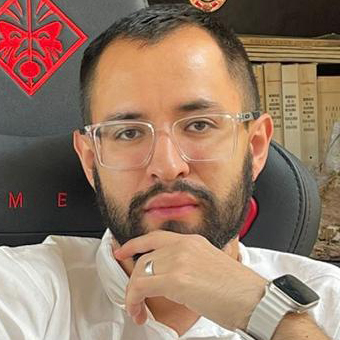A primer on how to find synagogue records, what genealogical material they include, and what they look like. Finding synagogue records can be problematic and time consuming as there are errors in catalogs and a variety of ways materials are described. JewishGen’s Shul Records America, a finding aid pointing to the location of American synagogue records includes more than 650 collections held at over 60 repositories or websites, with about 20% including URLS for digitized materials. Not only a historical resource but important as modern-day synagogues merge or close, Shul Records America encourages congregations to preserve records with genealogical value.

Already a member? Log in









You should receive a confirmation email with a link to the webinar soon.
You’ll also receive a reminder both the day before and one hour before the webinar begins.
Didn’t receive a confirmation email?
You successfully registered for %s.
You should receive a confirmation email with a link to the webinar soon.
You’ll also receive a reminder both the day before and one hour before the webinar begins.
Didn’t receive a confirmation email?
To ensure a smooth, high-quality webinar experience, check the quality of your internet connection.
On the day of the webinar, connect 30–40 minutes before and turn off any background software. If you can’t tune in live, you can view the recording later in the Webinar Library. If joining via a mobile device, be sure to first install the free GoTo app.
Questions? Contact us or read our FAQ.
It looks like you’re already registered for this webinar
You can register for another webinar.
Didn’t receive a confirmation email?
It looks like you’re already registered for these webinars
You can register for another webinar.
Didn’t receive a confirmation email?
Something happened on our end, sorry about that
We were unable to complete your registration.
Please try again later.



 Syllabus
Syllabus
 Chat Log
Chat Log
Romaniotes are in the greater sense of Sephardic meaning anything that is not Ashkenazic. But they are not Sephardic Jews (as in the Jews who descend from those who were expelled from Spain and Portugal.) They were in Greece for thousands of years. They are not Ladino speaking.
Excellent! (Only half way through so far, but so impressed.) But please know that Janina/Ioannina is pronounced as Yhianina. It’s neither an English J as in Jane, nor is it ay-o- nina, as in Old McDonald had a farm, e ai e ai o. For those of us who speak a little Greek, that was pretty jolting. 🙂
One f the best I have ever attended
I thought Ellen did a great job. The information is vast, and she did an excellent job corraling it.
very interesting and shared very well
Thank you for this informative webinar
Very clearly laid out presentation!
This was excellent! Ellen Kowitt is very knowledgable and presents clearly.